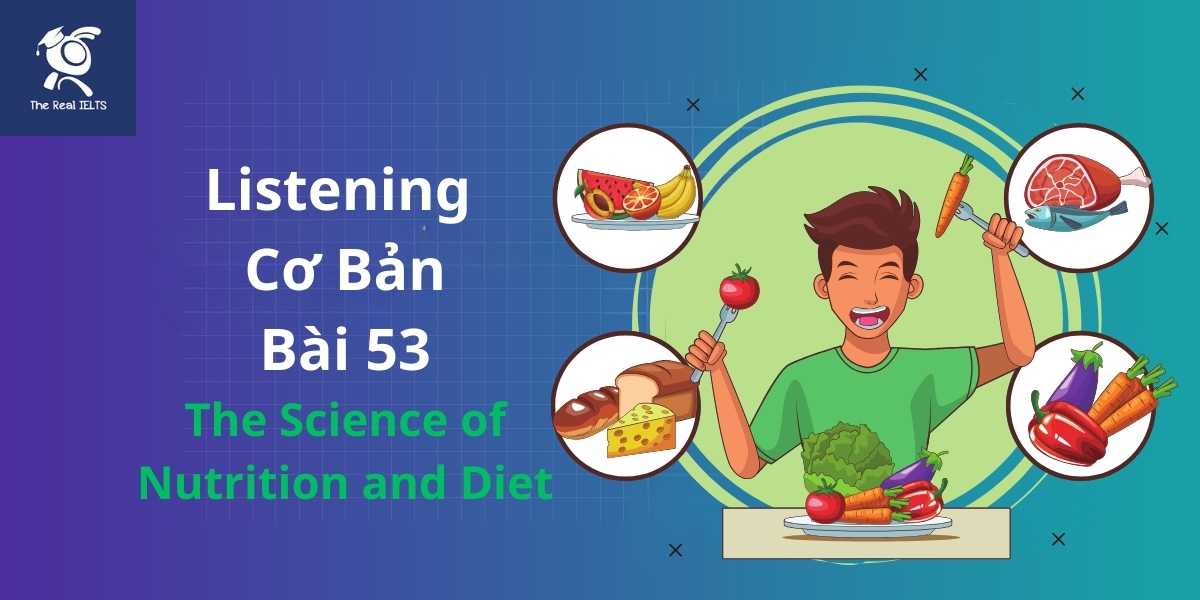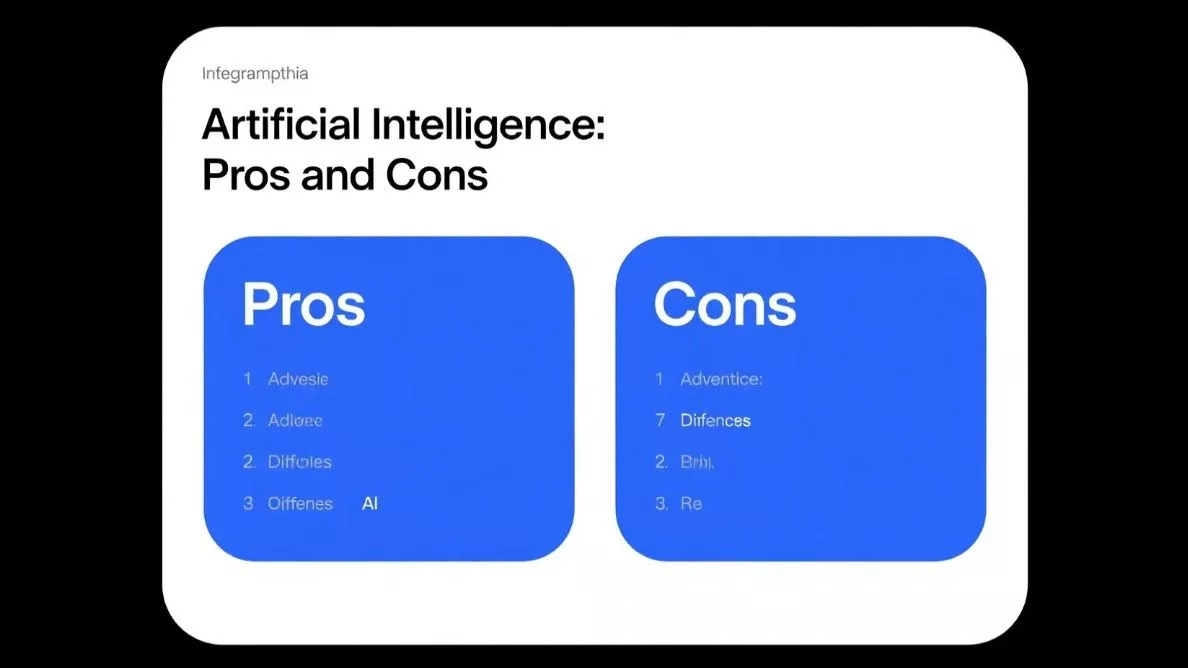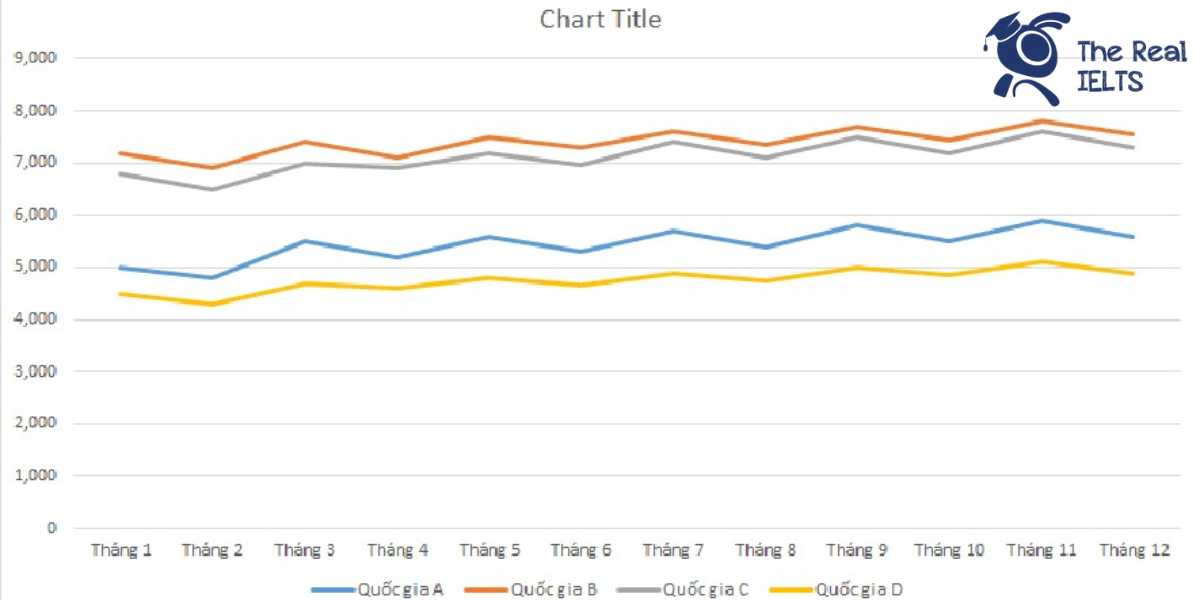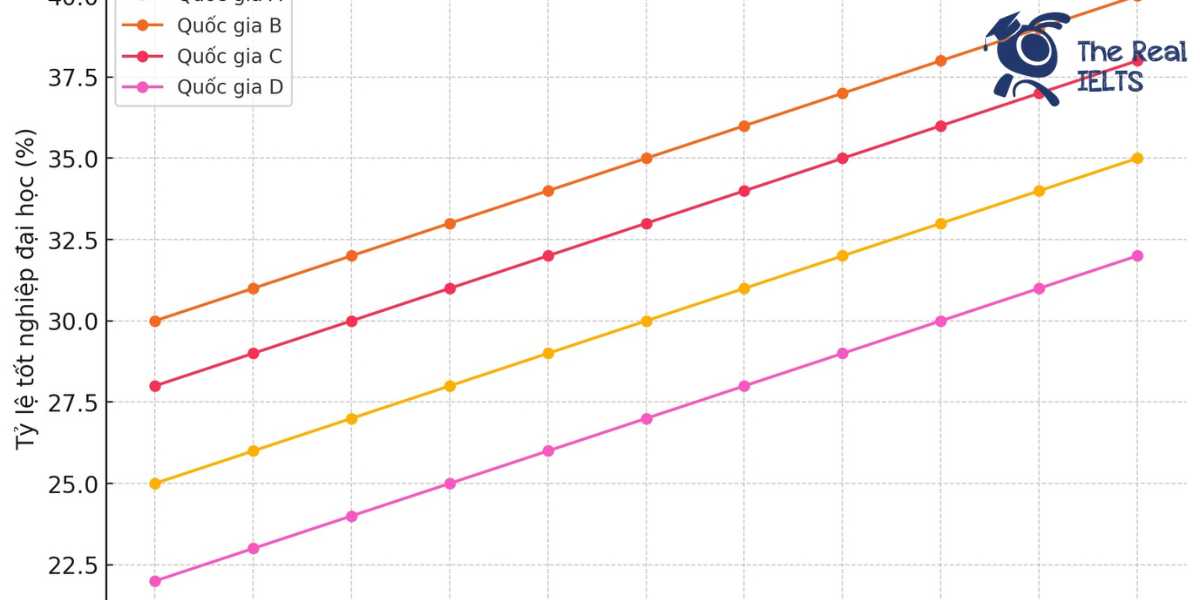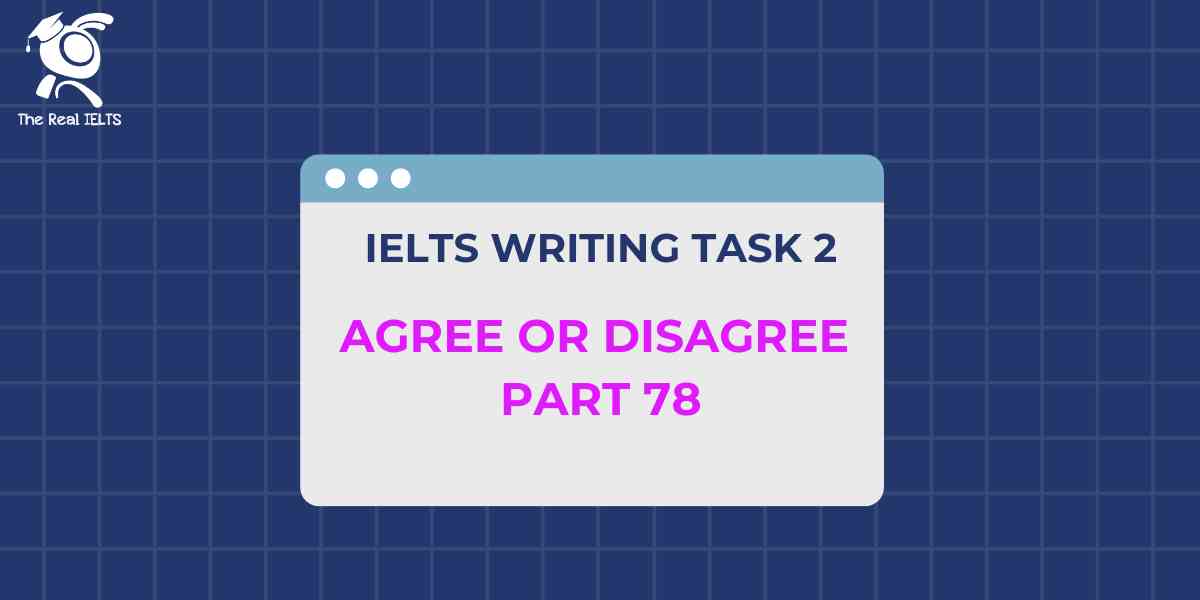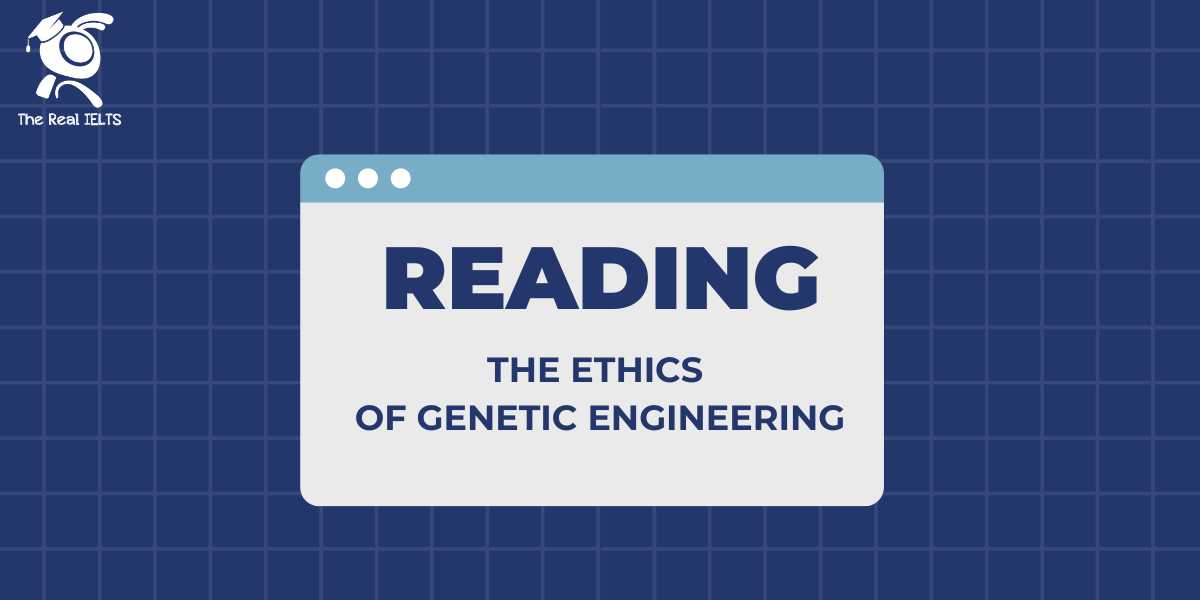Khoa học về Giảm Cân và Ăn Kiêng trong những năm gần đây là chủ đề được rất nhiều người quan tâm. Bài Listening này đang nói về chủ đề này và các bạn hãy cố gắng hoàn thành tốt các câu trả lời của mình.
Bài Listening
Questions
Part 1: Form Completion
Listen to a conversation between a student and a university professor discussing a project on nutrition and diet.
Complete the form below. Write NO MORE THAN TWO WORDS AND/OR A NUMBER for each answer.
Student Project Form
- Project Title: ______________
- Student Name: ______________
- Submission Date: ______________
- Topic Focus: ______________
- Research Method: ______________
- Data Collection Period: ______________
- Supervisor Name: ______________
Part 2: Multiple Choice
You will hear a lecture about the basics of nutrition.
Choose the correct letter, A, B, or C.
- What is the primary function of carbohydrates in the body? A. Build muscle B. Provide energy C. Strengthen bones
- According to the lecture, what percentage of daily caloric intake should come from fats? A. 10-15% B. 20-35% C. 40-50%
- Which vitamin is essential for blood clotting? A. Vitamin A B. Vitamin D C. Vitamin K
Part 3: Sentence Completion
You will hear an interview with a dietitian about popular diet trends.
Complete the sentences below. Write NO MORE THAN TWO WORDS for each answer.
- The dietitian recommends eating a variety of foods to ensure an adequate intake of ______________.
- High-protein diets can be beneficial for building ______________.
- A common side effect of low-carb diets is ______________.
- Mediterranean diets are rich in ______________ and healthy fats.
- The dietitian emphasizes the importance of staying ______________ to maintain overall health.
Part 4: Matching Information
You will hear a talk about different types of diets.
Match the diet type (16-20) to the characteristics (A-E).
- Vegan Diet
- Keto Diet
- Paleo Diet
- Mediterranean Diet
- Intermittent Fasting
Characteristics
A. Focuses on high protein and low carbs B. Includes eating patterns such as 16/8 or 5:2 C. Eliminates all animal products D. Rich in fruits, vegetables, and olive oil E. Based on what early humans might have eaten
Answers
Part 1:
- The Impact of Modern Diets on Health
- Emma Johnson
- July 15th
- Comparison between traditional and modern diets
- Mixed-methods
- Three months
- Dr. Roberts
Part 2: 8. B. Provide energy 9. B. 20-35% 10. C. Vitamin K
Part 3: 11. Nutrients 12. Muscle 13. Fatigue 14. Vegetables 15. Hydrated
Part 4: 16. C. Eliminates all animal products 17. A. Focuses on high protein and low carbs 18. E. Based on what early humans might have eaten 19. D. Rich in fruits, vegetables, and olive oil 20. B. Includes eating patterns such as 16/8 or 5:2
Audio Scripts
Part 1:
Student: Hi Professor, I wanted to discuss my project on nutrition and diet with you.
Professor: Sure, let’s have a look. What’s the title of your project?
Student: It’s called “The Impact of Modern Diets on Health.”
Professor: Great, and your name?
Student: Emma Johnson.
Professor: When are you planning to submit it?
Student: The submission date is July 15th.
Professor: And what’s the main focus of your topic?
Student: I’m focusing on the comparison between traditional and modern diets.
Professor: How will you be conducting your research?
Student: I’ll be using a mixed-methods approach, combining surveys and interviews.
Professor: How long will you collect data for?
Student: The data collection period will be three months.
Professor: And finally, who is supervising your project?
Student: Dr. Roberts is my supervisor.
Part 2:
Lecturer: Today, we’re going to talk about the basics of nutrition. Carbohydrates are crucial because they provide energy to our body. It’s recommended that 20-35% of our daily caloric intake comes from fats. Another important nutrient is Vitamin K, essential for blood clotting.
Part 3:
Interviewer: Can you tell us about the importance of a varied diet?
Dietitian: Yes, a varied diet ensures an adequate intake of nutrients. High-protein diets are particularly beneficial for building muscle. However, low-carb diets can lead to fatigue, a common side effect. Mediterranean diets, known for their richness in vegetables and healthy fats, are highly recommended. And always remember, staying hydrated is crucial for overall health.
Part 4:
Speaker: Let’s explore different diet types. A Vegan Diet eliminates all animal products, while the Keto Diet focuses on high protein and low carbs. The Paleo Diet is based on what early humans might have eaten. The Mediterranean Diet is rich in fruits, vegetables, and olive oil. Lastly, Intermittent Fasting includes eating patterns such as 16/8 or 5:2.
Học lại bài cũ: Bài tập Listening 52: The History of Television.


